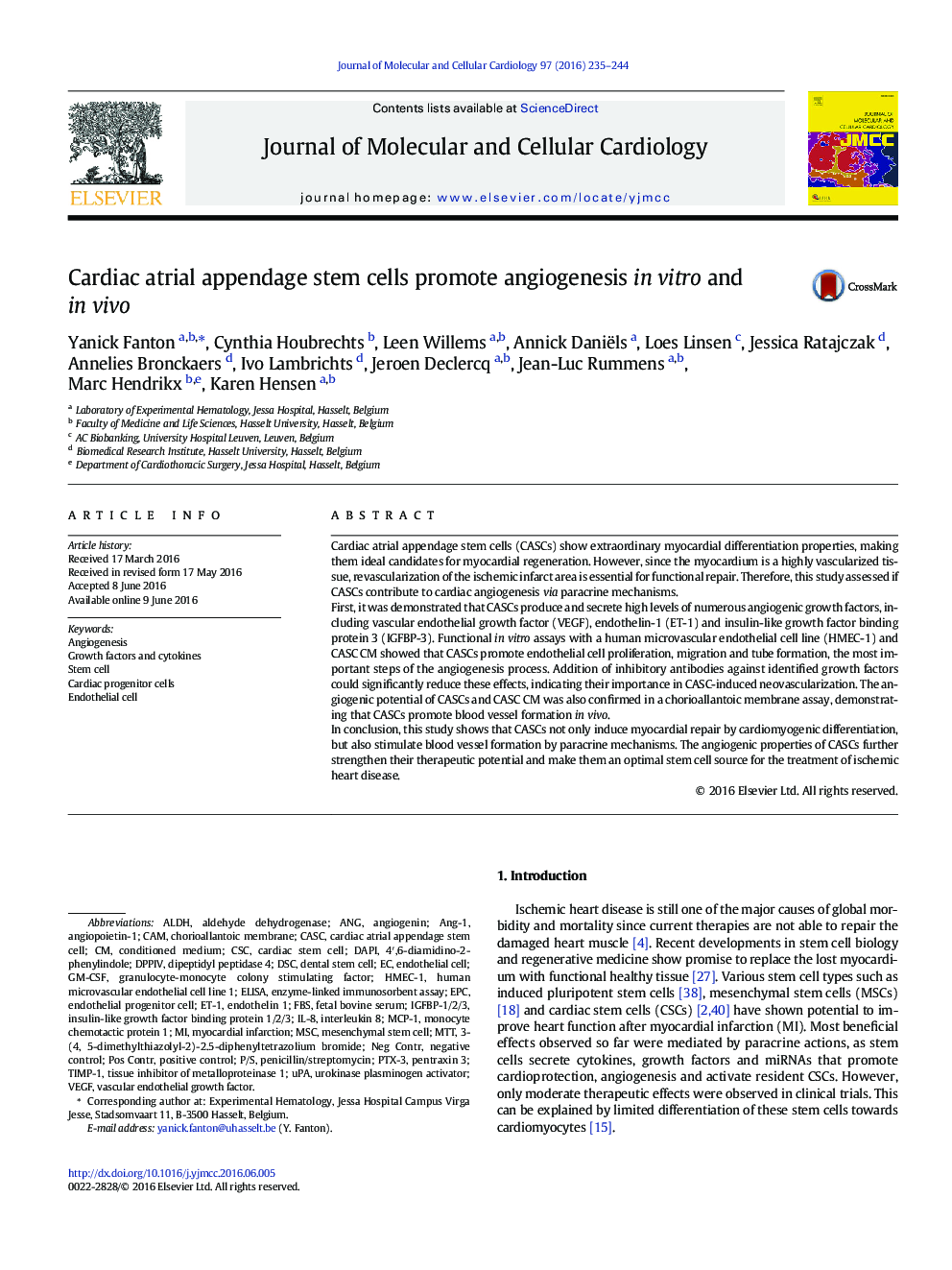| Article ID | Journal | Published Year | Pages | File Type |
|---|---|---|---|---|
| 8473776 | Journal of Molecular and Cellular Cardiology | 2016 | 10 Pages |
Abstract
In conclusion, this study shows that CASCs not only induce myocardial repair by cardiomyogenic differentiation, but also stimulate blood vessel formation by paracrine mechanisms. The angiogenic properties of CASCs further strengthen their therapeutic potential and make them an optimal stem cell source for the treatment of ischemic heart disease.
Keywords
CSCPTX-3Granulocyte-monocyte colony stimulating factorCASCHMEC-1DPPIVuPATIMP-1IL-8GM-CSFET-1DAPIMCP-1MSCangiopoietin-1ALDHDSCEPCFBS4′,6-diamidino-2-phenylindoleMTTP/SAng-1aldehyde dehydrogenaseMyocardial infarctionAngiogenesisAngiogeninendothelin 1AngInterleukin 8ELISAEnzyme-linked immunosorbent assaydipeptidyl peptidase 4CAMfetal bovine serumStem cellcardiac stem cellEndothelial cellMesenchymal stem cellCardiac progenitor cellsEndothelial progenitor cellConditioned mediumchorioallantoic membraneVascular endothelial growth factorVascular Endothelial Growth Factor (VEGF)urokinase plasminogen activatorTissue inhibitor of metalloproteinase 1monocyte chemotactic protein 1pentraxin 3Penicillin/streptomycinPositive controlnegative control
Related Topics
Life Sciences
Biochemistry, Genetics and Molecular Biology
Cell Biology
Authors
Yanick Fanton, Cynthia Houbrechts, Leen Willems, Annick Daniëls, Loes Linsen, Jessica Ratajczak, Annelies Bronckaers, Ivo Lambrichts, Jeroen Declercq, Jean-Luc Rummens, Marc Hendrikx, Karen Hensen,
